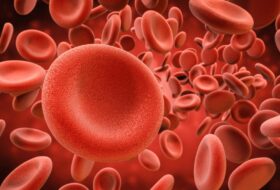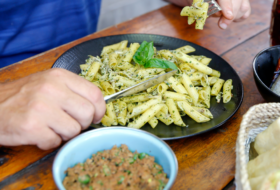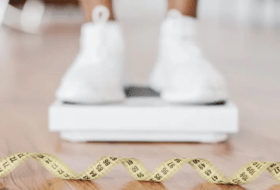It is important that you read this expert perspective before learning more about energy availability and RED-S. This piece provides valuable context for this topic.
This story will not be what you expect.
We will be sharing our perspective with you. This story may be triggering for those who restrict their eating. If you think that may be you, please get someone supportive with you as you read.
We are scientists and can explain the concepts of energy availability and RED-S in medical and physiological terms. We will do that in our subsequent articles and videos, as it is necessary.
But the root causes of low energy availability (LEA) and RED-S run much deeper and is relevant to all genders.
From our Perspective
From the many conversations (qualitative interviews if you like) that we hold as part of our practice every day; with active people, clients who want to lose weight, athletes and other stakeholders in sport; it is clear to us that LEA and RED-S can frequently result from the poorly recognised psychological aspects of nutrition.
It is important to note that LEA can be unintentional. When juggling a really busy day of work, study and training, it can be hard to eat enough. And that many of us can think we are doing the right thing to restrict the amount or types of food we eat to be healthy. But in fact that can lead to LEA, which is unhealthy. In this piece we will talk about what leads many of us to restrict our food intake, when perhaps it is not the best thing for us.
How you feel about yourself impacts your eating behaviours. Significantly.
How you feel about yourself, and what you believe about yourself, is significantly impacted by:
- What you see around you
- What you hear around you
- What other people say to you and the language they use
- Who you think you should be, and for whom.
No meal plan in the world can help you understand this about yourself.
Conversations with supportive people and self-reflection do.
Nutrition in our society
In today’s society, well in Western society at least, what you see and hear around you are more often than not unrealistic ideals that do not reflect you.
They make you think you should be something else. This can prompt you to seek nutrition advice, supplements or other strategies to try to mold yourself into this percieved “ideal”.
This frequently means going on some kind of diet. Whatever diet is grabbing your attention on socials, among your family and friends, on TV, in media, in the bookstore. You will likely end up restricting your food intake, or avoiding some innocent food with many great nutrients in it because of the one ‘bad’ thing in it that someone told you about, or even avoid whole food groups.
This is what the term ‘diet culture’ reflects.
Restrictive eating
Restrictive eating is a major contributor to LEA and RED-S. Unfortunately, restrictive eating has been normalised in our culture, in the ‘diet culture’ that pervades our society. Some people, and many companies, make a lot of money from selling you the latest diet, ‘free-from’ food product or ‘don’t eat’ substitute products.
As an example, we are astounded at the highly processed, nutrient-devoid meat-substitute products on the market. Deciding to eat more plant foods is a great thing and should be encouraged. However, a product made from a bean or grain that has been processed to within an inch of it’s life that there are no nutrients or fibre left in it, is not going to give you the health benefits that a natural plant food in its unprocessed form will. Those products have nothing on beans, legumes, nuts, seeds, wholegrains and vegetables in their original form for health. They will just line someone’s pockets, very well thankyou. Nothing like a great food trend to make money.
We have watched this from the sidelines for years.
Our restrictive eating and diet culture is costing us and our youth massively. Both psychologically and physically. It is ironic, as we think we are gaining these things when we go on these diets. But they are a short-term approach with a long-term cost; to mental and physical health and wellbeing. Yo-yo dieting is one of the worst things you can do to your metabolism.
We need you to understand that before you go on to explore these concepts of LEA and RED-S. It is critical that you do.
Fuel My Potential is not a diet platform. We never will be. We are here to empower and help you.
Get good support from the right people
When looking for nutrition support, don’t rely on or seek help from people who think they know nutrition. Check that they have completed many years of specific nutrition training including some nutrition counselling or psychology training. You want their input, rather than those who have completed a weekend course or a couple of nutrition papers at College or University, if that. Many people have ideas about how to lose weight because of what worked for them, but that doesn’t make them a safe nutritionist for you. They may not understand how other people’s lived experiences can be very different from their own. Well-trained, good nutritionists and dietitians do.
Good nutrition is not about making eating choices to lose weight – yet so many believe that. No. Nutrition is about eating in way to nourish your body and enhance its health and function, both physically and mentally.
Know that there is no legal regulation regarding who can call themselves a nutritionist in many countries. In most countries, the term ‘dietitian’ is a legally protected term only able to be used by appropriately qualified and registered health and nutrition professionals. An appropriately trained nutritionist or dietitian has at least a Bachelors degree majoring in Human Nutrition, that should include training in nutrition counselling. By ‘nutrition counselling’ I mean training in and a clear understanding of the significant roles that psychology and life circumstance play in nutrition and eating choices and behaviours. Many nutritionists and dietitians will have Masters degree’s and PhD degree’s too – there is a lot for us to learn in the nutrition space and we love learning!
Have conversations, and have them with the right (supportive and well-informed) people. Be empowered to be who you are, to nourish your body, your soul and your mind; the way you need to for life-long good health and peace within yourself.
Work with a psychologist too if you can.
This kind of good support is what you need, and what you deserve – for yourself and no-one else. If you want to spend money investing in yourself, spend it on good people rather than the latest supplement, diet programme or weight loss plan that doesn’t serve you in the long run. Spend your money wisely, on wise people.
Written by Dr Kirsty Fairbairn (NZRD), Fuel My Potential Co-Founder and Senior Sports Dietitian
Our RED-S series will be live soon for our FMP members. Keep an eye out on our video and article hub.






